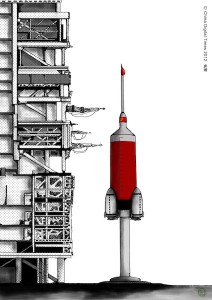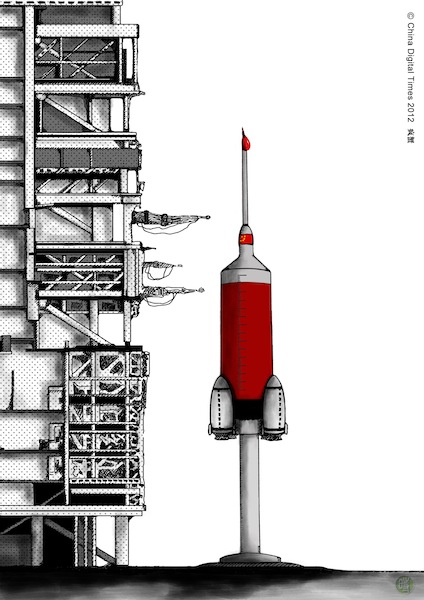含笑酒泉 (hánxiào jiǔquán) smile in fountains of booze

The Shenzhou 9 launch received extensive media coverage, while the online uproar over a forced abortion went largely ignored. (Hexie Farm)
Play on the idiom “die happy,” literally “pass into the nine fountains [of the afterlife] with a smile on one’s face” (含笑九泉 hánxiào jiǔquán). Upon the launch of the Shenzhou 9 manned spaceship on June 16, 2012, netizens quipped, “Now that the Shenzhou 9 has launched successfully, our leaders can smile in fountains of booze” (神九发射成功,领导含笑酒泉). Just a week-and-a-half earlier, images from a forced late-term abortion in Shandong had set off a Weibo firestorm. Chinese state media largely ignored the abortion case in favor of Shenzhou 9 coverage, which was settled out of court for RMB 70,600.
A common theme in netizen complaints was the disparity in funds spent on grandiose projects and foreign aid, such as school buses donated to Macedonia and massive and ornate government buildings, compared with the amount spent on social welfare projects. On some forums discussing the Shenzhou 9, users copied text from a February 3, 1977 People’s Daily article criticizing the Russians for engaging in a space race with the Americans: “No number of rockets could compensate for food or clothes” (飞船卫星虽多,究竟不能当饭吃,当衣穿).
“Smile in fountains of booze” was blocked on Weibo on June 18, 2012. The phrase has since been unblocked.









